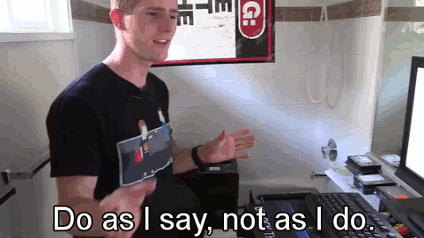Heya Aska!
So I’ve navigated successfully through the Daniels site and gotten myself an offer for Architectural Studies! Yay! Since I’m most likely going to accept, I got a few questions for you!
1) How big is the Daniels faculty? Around how many undergraduates get accepted each year? I’ve tried looking but I can’t really find a solid number and I really want to know approximately how big my class sizes might be!
2) Which residence is most popular for Arch students to live in? I don’t live in Canada so I can’t come to residence tours to see what it’s like and feel the vibe…
3) (A more general question but) How can a super shy introvert like me get involved in dorm life, making friends, life around the campus etc. etc? I really want to work on improving myself as a person but at the same time it takes a lot of effort to shove me out of my shell :/
Thank you so much! I always love reading your responses!
– A smoll high schooler from across the globe
———————————————
hey there,
1. the reason you won’t find any numbers on this is because it’s not reallypractical information in the way that you probably think it is. it’s true that Daniels is a faculty separate from the faculty of arts & science, but since the undergraduate division only offers one specialist (visual studies), most Daniels students are also taking a program (or two) in the faculty of arts & science. that means you’ll be taking courses with artsci kids, which means that the class size kind of just depends on the class.
most first-year classes are pretty massive; i’m talking several hundred students, sometimes close to a thousand. if you take a more obscure class or a second-year course, it may whittle down to under a hundred. i don’t mean to imply that there isn’t a separate culture and hub of community and resources at Daniels – because there is. it’s just that there’ll be a lot more crossover than you think.
2. again, because architecture is so small, i don’t know that there’s a specific residence for architecture students. there is certainly a vibe, as you put it, to each college residence (plus Chestnut), which is very hard to articulate. since that vibe is so ephemeral, i think it makes the most sense to make a decision based on concrete things, especially if you can’t come to campus for a tour.
sometimes, a residence tour can help you get a feel of where you’d prefer to live
some questions you may want to ask yourself include: do you prefer dorm- or suite-style? what’s your price range? where is the residence located in relation to your classes, libraries, and other amenities? would you rather live in a tall, modern building like Woodsworth, or an old, castle-esque building, like those at Victoria and St. Mike’s? do any of the residences or colleges run an activity or program that particularly interests you? these things can all help you make a decision.
3. i’ve used a handy little schematic (pictured below) to demonstrate this question. what it’s illustrating is that there is a good way to push yourself, and a bad way. if you can push yourself just a smidge past your comfort zone, you enter into your challenge zone. in the challenge zone, you gain skills and confidence by trying new things that are challenging but still doable. if you regularly enter your challenge zone, it starts to expand. those things that were previously found challenging become part of your comfort zone. and voila – growth!
however, if you push yourself too hard and end up in situations where you’re very uncomfortable, you may find yourself in the panic zone. in the panic zone, you feel completely unequipped to handle the situation at hand, and you begin to panic. after getting yourself out of the situation, you feel nothing except a greater aversion to that type of situation.
the key to getting out of your shell, i think, is engaging your challenge zone as much as possible, but not pushing yourself into your panic zone. maybe the thought of living with a roommate causes you to panic, but you can challenge yourself to meet everyone on your floor before the end of the first semester. baby steps, and you’ll get there.
other general tips: get involved with extra-curriculars. not only can they lead to opportunities (even potential jobs!) but your network of friends will expand so, so quickly. on a similar note: get a job! you may get lucky and actually become friends with your colleagues. introduce yourself to the people sitting next to you in class. if your residence has a dining hall, sit with people. maybe you can start by sitting with your don, and then gradually add people to your group. finally, hang out in your common room. that’s just a general tip about residence. all you have to do is literally sit there and new potential friends will come TO YOU. it’s the LAY-Z-BOY of friend-making.
cheers,
aska

